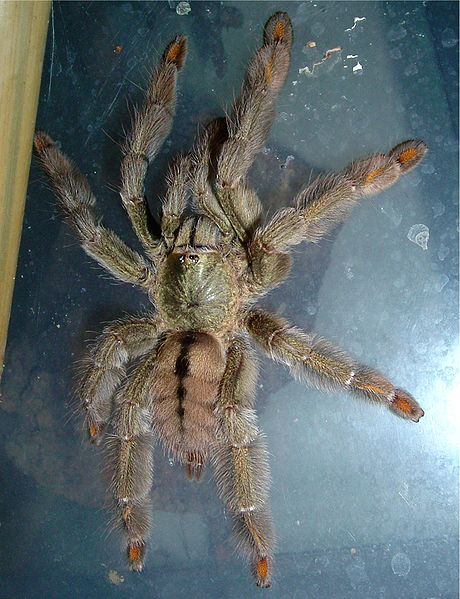Control mice froze when a beaker containing the scent of a fox was introduced into their environment. They stayed away from the beaker. Mice with the disrupted ASIC1a gene didn't freeze as much and even climbed onto the beaker. (Yes, they checked. Their sense of smell was normal.)
Now, these are lab mice. They have never seen (or smelled) a fox before. The researchers were studying innate (hard-wired) fear, not learned fear responses.
Here's the part that gets me. They also used a substance that blocked the ASIC1a protein (in normal mice). That also reduced the fear response. This substance, TcTx1, was isolated from the venom of Psalmopoeus cambridgei, this tarantula:

It grows to be five inches across, bigger than any mouse I've ever seen. I don't know about you, but no amount of spider venom will reduce my innate fear of this thing.



